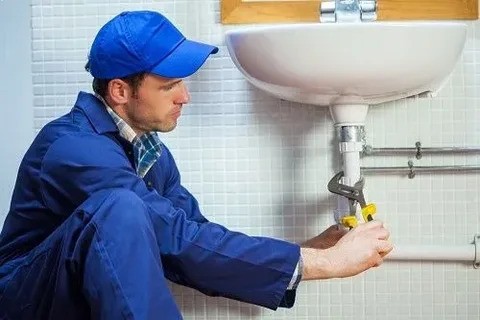Greece Plumber Jobs
Greece, famed for its ancient aqueducts and sun-kissed islands, relies on modern plumbing systems to sustain its tourism-driven economy and growing urban centers. With over 30 million annual visitors and a construction sector rebounding post-pandemic, skilled plumbers are in high demand. From installing solar water heaters in Santorini to maintaining luxury hotel pipelines in Athens, plumbing jobs in Greece offer stability, competitive pay, and the chance to work in a culturally rich environment. This guide unpacks how to launch or advance your plumbing career in Greece (Greece Plumber Jobs ).
Why Become a Plumber in Greece?
Plumbing is more than fixing leaks—it’s a career with tangible impact. Here’s why Greece stands out:
- Consistent Demand: Aging infrastructure and tourism-driven construction ensure steady work.
- Diverse Opportunities: Residential, commercial, industrial, and eco-friendly plumbing niches.
- Freelance Flexibility: Many plumbers work independently, especially in seasonal tourist hubs.
- Lifestyle Perks: Mediterranean climate, historic landscapes, and a lower cost of living compared to Northern Europe.
Types of Plumber Jobs in Greece
Greece’s plumbing sector caters to varied specialties. Key roles include:
1. Residential Plumber
- Responsibilities: Install and repair pipes, water heaters, and sanitation systems in homes.
- Hotspots: Urban areas like Athens, Thessaloniki, and rapidly developing suburbs.
2. Commercial/Industrial Plumber
- Responsibilities: Maintain plumbing for hotels, hospitals, and factories.
- Employers: Large resorts (e.g., Costa Navarino), industrial parks, and municipal projects.
3. Solar and Green Plumbing Specialist
- Responsibilities: Install solar water heaters, rainwater harvesting systems, and energy-efficient fixtures.
- Growth Driver: Greece’s push for renewable energy under the EU’s Green Deal.
4. Emergency Plumbing Services
- Responsibilities: Address burst pipes, sewage backups, and urgent repairs.
- Employers: 24/7 service companies in cities and tourist islands like Mykonos and Rhodes.
5. Marine Plumbing
- Responsibilities: Service yachts, ferries, and port facilities.
- Employers: Shipyards in Piraeus and marinas in Corfu or Crete.
Requirements to Work as a Plumber in Greece
Certifications and Training
- Vocational Education: Complete a 2-year program at a Greek IEK (Vocational Training Institute) or equivalent EU certification.
- Professional License: Register with the Technical Chamber of Greece (TEE-TCG) for public projects.
- Specializations: Certifications in solar thermal systems (e.g., ESTIF standards) or gas fitting enhance employability.
Language Skills
- Greek Proficiency: Essential for local clients and compliance with regulations.
- English: Valuable in tourist areas and international companies.
Work Permits for Foreign Plumbers
- EU Citizens: Free to work; register with local municipalities.
- Non-EU Citizens: Secure a job offer and apply for a Type D National Visa and residence permit. The Hellenic Ministry of Migration prioritizes trades in high demand.
How to Find Plumber Jobs in Greece
1. Job Portals and Agencies
- Skywalker.gr: Lists construction and technical roles.
- Kariera.gr: Features plumbing vacancies across industries.
- LinkedIn Greece: Connect with construction firms like Terna SA or Aktor.
2. Networking
- Join SEDIPPE (Hellenic Plumbers Association) for training and job leads.
- Attend trade fairs like BuildExpo Greece in Athens.
3. Direct Outreach
- Target tourist islands (e.g., Crete, Kos) where seasonal demand spikes.
- Partner with real estate agencies managing vacation rentals.
Salaries and Benefits
- Entry-Level Plumber: €12,000–€18,000 annually.
- Experienced Plumber: €20,000–€35,000, with freelancers earning up to €50/hour during peak season.
- Benefits: Health insurance (via IKA), overtime pay, and tool allowances.
Challenges of Plumbing in Greece
- Economic Volatility: Construction slowdowns during financial crises.
- Seasonal Work: Unsteady income on islands outside summer.
- Regulatory Hurdles: Bureaucracy in obtaining TEE-TCG licenses.
Immigration Pathways for Non-EU Plumbers
- Job Offer Route: Employers sponsor work permits for skilled trades under Greece’s National Skills Strategy.
- Freelance Visa: Self-employed plumbers can apply via the Greek Ministry of Labour.
- Golden Visa: Invest €250,000+ in property and gain residency (indirect path).
Top Tips for Success
- Master Greek: Take language courses to build trust with local clients.
- Specialize: Train in eco-technologies like heat pumps or greywater systems.
- Leverage Tourism: Partner with property managers for recurring contracts.
Greece Plumber Jobs
Plumber jobs in Greece blend technical skill with the rewards of sustaining the nation’s vibrant tourism and infrastructure. Whether you’re repairing ancient pipes in a Peloponnese village or installing cutting-edge solar systems in Athens, your expertise will be valued. Start by certifying your skills, networking locally, and embracing Greece’s rich professional landscape.
Ready to fix your future in Greece? Dive into plumbing opportunities and become part of the country’s essential workforce!



